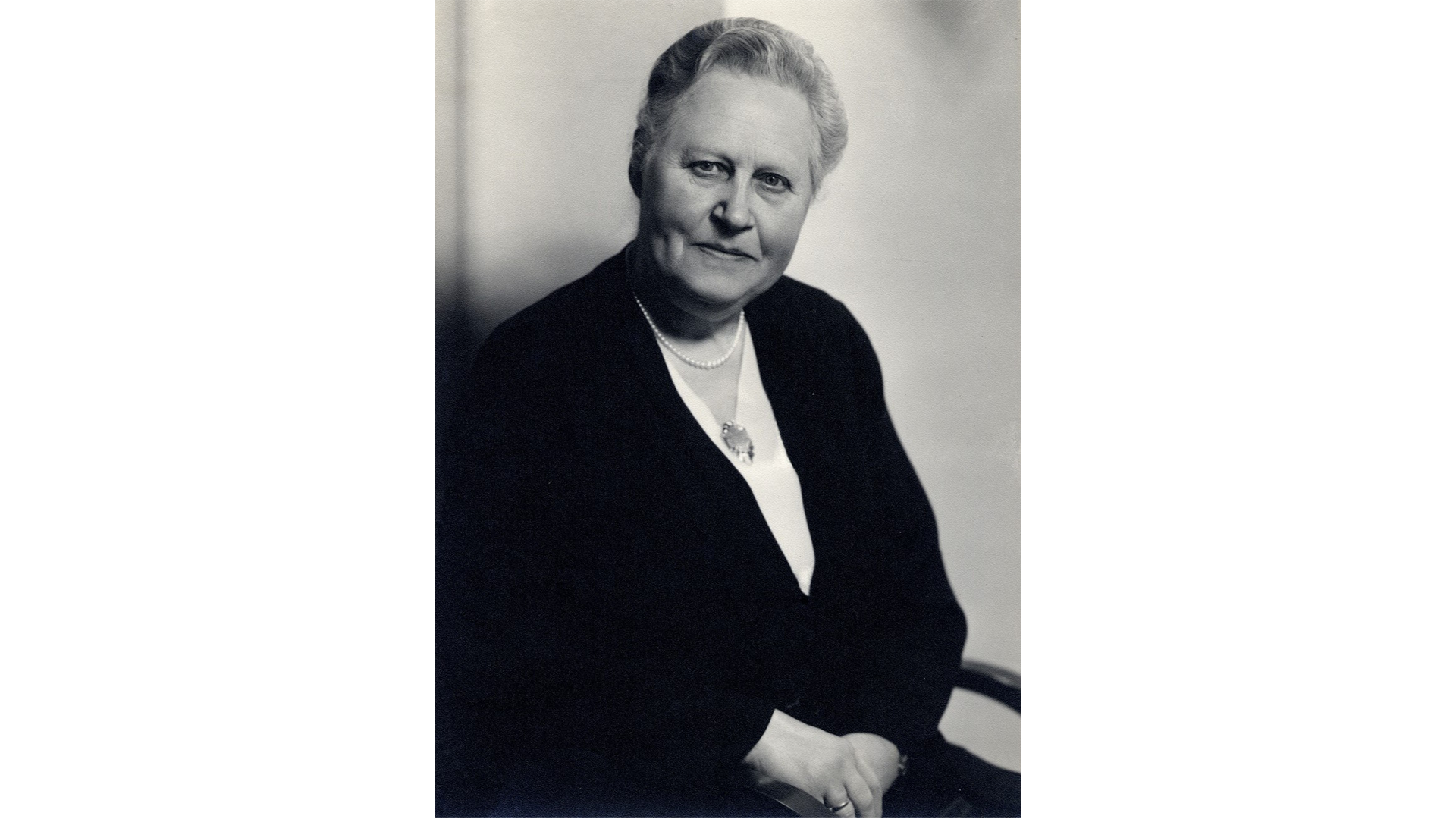Dr. Oetker Stories
How Lina Oetker shaped the company
Karoline Oetker, affectionately known as "Lina", was an outstanding personality for the Dr. Oetker company and the city of Bielefeld. The wife of the company's founder combined skilful entrepreneurship with great social commitment.

27.3.2024 • History
Lina was born on 14 October 1867 in Hanau, Hesse. It was there that she met Dr. August Oetker, whom she married in 1889. Together with their son Rudolf, the couple moved from Berlin to Bielefeld in 1891 to take over the Aschoff pharmacy, from which the Dr. Oetker company was to develop.
Lina made her husband's lifelong dream come true
In Berlin, Dr. August Oetker was a partner in a small company that manufactured, among other things, equipment for pharmacies. Unfortunately, business went badly, August Oetker was forced to withdraw from this shareholding, probably losing a not inconsiderable sum of his fortune in the process. But Lina believed in her husband's success, and in 1891 she financed the purchase of the Aschoff pharmacy in Bielefeld, thus fulfilling the lifelong dream of her husband.
A family portrait from 1895. On the left, Lina can be seen next to her son Rudolf and husband August. The first Dr. Oetker products were already established on the market at that time.
Over the years, Lina proved to be her husband's greatest support, both privately and professionally. She also set up the legendary test kitchen, which became a permanent institution when the company moved to a new factory building in the Lutterstreet in 1900.
Strokes of fate for Lina Oetker
In 1893, Lina Oetker gave birth to her second child, who died after three months. This first major stroke of fate shaped her and is considered the motivation for her extensive commitment to the well-being of disadvantaged children. Many years later, another heavy blow: their only son Rudolf was killed in the Battle of Verdun in March 1916, leaving behind his wife Ida and two small children, Ursula and Rudolf-August.
Lina Oetker with her son Rudolf and granddaughter Ursula in 1915.
August Oetker also despaired of this. He could not cope with the death of his only son and designated heir to the company. His health deteriorated and he died in 1918.
Entrepreneur and patron
Lina was suddenly alone with the business. Her grandson Rudolf-August was still decades away from taking over the succession. She took on the challenge so that her grandson, born in 1916, could one day inherit a healthy company. Lina navigated the company through one of its biggest crises. In the post-war period, the company was on the brink of collapse, as Dr. Oetker had become a takeover candidate. She prevented this by also using her private fortune.
Lina Oetker with grandson Rudolf-August in the mid-1930s.
Concern for employees and fellow human beings drove Lina Oetker. In 1915, she donated 100,000 Reichsmarks to care for war orphans. In 1926, she pushed ahead with the construction of the Oetker crèche, which offered space for twelve infants and 25 toddlers.
The Rudolf Oetker-Halle in Bielefeld in 1930. In front of it is a parked company vehicle.
She also acted as a patron. She regularly donated large sums of money to cultural institutions, such as the Bielefeld Municipal Museum. She also donated a world-class concert hall to her city, which was inaugurated in 1930 and still bears the name Rudolf Oetker-Halle in memory of her fallen son.
The only honorary citizen of Bielefeld
In 1934, the city of Bielefeld awarded Lina Oetker the honorary citizenship for her services. To this day, she is the only woman to receive this recognition.
Excerpt from the Honorary Citizenship Certificate from 1934.
Karoline "Lina" Oetker died on April 7, 1945. After her death, the city of Bielefeld named a street and a retirement home after her.
For more information please contact:
Claus-Carsten Andresen
Media Spokesperson History & Archive